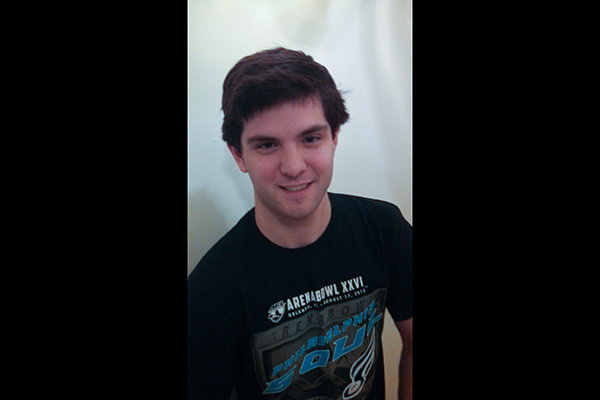Last week, Dallas Cowboy star Greg Hardy won a year-long appeal on the conviction he received in 2014 for domestic abuse against his now ex-girlfriend Nicole Holder.
He was originally suspended 15 games last season from the NFL, which was later reduced to four games after an appeal, and in the end, he claimed he was the true victim of the scenario.
Now, after a judge convicted Hardy only to have the conviction overturned by a jury trial, the charges against him have been expunged, essentially as if it had never happened.
But it did happen. And many sports fans were moving on from the situation.
Hardy was playing successfully when Dallas Cowboys owner Jerry Jones praised Hardy by calling him a “leader” and said he stood by him and supported him, and fans continued to cheer him and the team on, showing their support.
Then last Friday, a day after Hardy’s record was expunged, deadspin.com released never-before-seen photos of Holder after she was attacked by Hardy.
The horrific photos showed bruises all over her body, revealing in graphic detail what the 6-foot-7 inch tall, 278-pound
professional football player did to his girlfriend.
The outrage over Hardy returned, with players, coaches and fans of the NFL speaking out their disapproval of Hardy and his ability to continue playing football.
It should not take photos or videos of abused victims to cause such a level of disgust, but it does confirm what our
imaginations feared.
Seeing it causes much more emotion than reading a report can make you imagine. The photos renewed our disgust for Hardy and his actions, as well as those who should have been faulted for the outcome of
the situation.
In what is now considered a preliminary hearing, a North Carolina judge convicted Hardy. But during a subsequent jury trial after his appeal, Hardy reached a settlement with Holder, who said “he wasn’t going to get
punished anyway.”
At the end of the day, she knew he would still get released to walk on the football field and continue with his life.
NFL commissioner Roger Goodell has been criticized during his tenure with the league for dropping the ball when handling domestic violence situations, but one year ago Goodell handed Hardy a 10-game suspension, the maximum punishment under the league’s current domestic violence policies, when the situation began. To some it was not enough, but it was the maximum punishment he could hand down on Hardy.
This broke a few weeks after Goodell was blasted for his inability to properly punish Ray Rice, a star running back who was caught on tape punching and knocking out his fiance yet was reinstated to the NFL after the league tried to punish Rice by attempting to suspend him indefinitely after the tape was released. The courts ruled that it was double jeopardy, letting Rice walk free. Goodell swore to make things right moving forward, and he did what he could to keep
his word.
Then the NFL players union fought on Hardy’s behalf, arguing that because his offense took place before the league changed its policy on domestic violence, it had to fall under the old rules on the situation. Arbiter Harold Henderson agreed with Hardy and his union, forcing the league to reduce Hardy’s suspension to four games. Unions do a great job defending the people they represent, but with Hardy’s situation, the players’ union did not serve its constituents any justice and certainly didn’t do its job representing them.
The league conducted its own investigation when this all began and did obtain the photos the public finally saw last week. The Cowboys claim they never saw the photos before signing Hardy, but they clearly had access to them and passed on
the opportunity.
In the end, they did not care about justice being served against Hardy—they only wanted to win. Whether Hardy was in legal standings to play in the NFL or not, it wasn’t morally right for any team to sign him and give him the opportunity to play football again, much the same way no team has signed Ray Rice since his reinstatement.
Not only have the Cowboys employed Hardy, they have praised him as a leader of the team. Hardy should not stand as a leader for anything in this country and should not be given the dignity of signing with any professional team.
But he has been given that opportunity. He still laces his cleats every Sunday, spreads war paint across his face each week and plays professional football on the highest level of sports.
As Holder predicted, he just got away with it anyway, and the league—and the law—should
be ashamed.
























